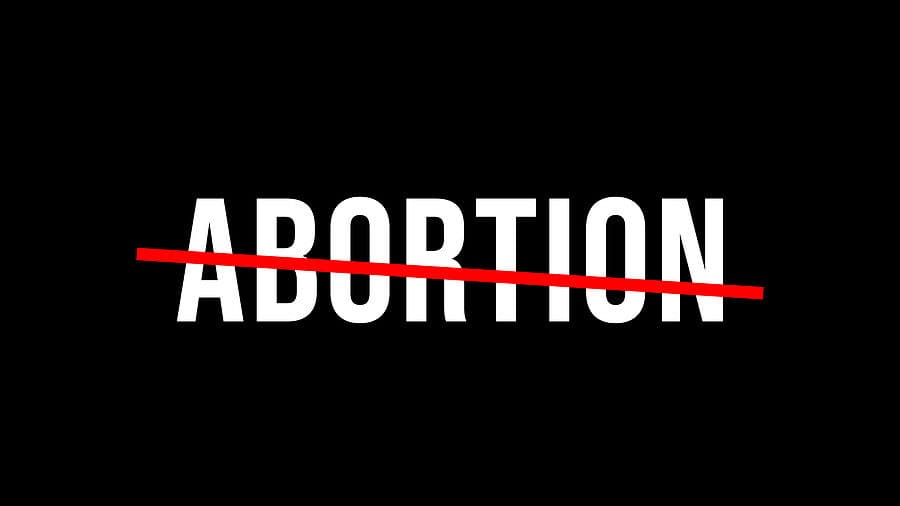Will the fall of Roe v Wade hinder companies’ ability to recruit talent? Of course, it’s difficult to predict whether such fears will come to bear, but there is nonetheless reason to believe that access — or lack thereof — to safe abortions will affect hiring.
For starters, take this study, which showed that 40% of American women cited financial reasons as a factor in their decision to get an abortion. The logic, then, is that the personal economic ramifications of being forced to birth babies can impact whether certain women remain in the workforce. And sure enough, a 2018 paper indicated that “six months after denial of abortion, women were less likely to be employed full time.”
And here’s one more stat to pile on for now: Unplanned births can reduce women’s participation in the workforce by as much as 25%, according to this study. No surprise, then, that more than 150 economists had filed an amicus brief with the Supreme Court arguing that “abortion legalization has had a significant impact on women’s wages and educational attainment, with impacts most strongly felt by Black women.”
Then, of course, there’s the possibility that women may be unwilling to work in states that criminalize abortion access. As this poll of adults with college degrees showed, two-thirds had said that the a Texas abortion ban would discourage them from taking a job in that state. And about half of the respondents said they would consider leaving their own state if lawmakers passed such a ban. Plus, notably, 40% of men in Florida said they would not apply for a job in a state with abortion ban.
This may be particularly problematic for giants like Walmart, McDonald’s, Amazon, and Roark Capital Group, a private-equity firm that owns Arby’s, Dunkin’, and the Cheesecake Factory. That’s because these businesses are among the largest employers in all 13 trigger-law states, according to BusinessInsider, which also points out: “Workers at major brands including Kroger, UPS, Lowe’s, Tyson Foods, Marriott, and Dollar General would also be heavily affected, as each company is a top employer in at least four states with abortions bans that would be triggered by the overturn of Roe.”
Again, though, it’s tough to tell whether such opinions will translate to actions. After all, how many people have said,. “If X happens, I’m moving to Canada.” And yet, Canada has yet to experience a major influx of American immigrants. (Though perhaps this is also partly because many of the people most impacted by lack of access to reproductive rights are low-income workers who lack resources to move out of state.)
Meanwhile, some organizations — including Dick’s Sporting Goods, Nordstrom, Disney, and a wide range of other businesses — have already committed to paying travel expenses for an abortion. And predictably, there have been some critics. “It should go without saying that turning access to basic life-saving women’s health care into a corporate perk to attract and retain talent is the sort of perverse and dystopian outcome you’d only encounter in a country like the U.S.,” says writer Ali Griswold in her newsletter.
Or here’s this quote from a Slate article:
“One colleague of mine compared abortion travel benefits to McDonald’s offering salads: They’re there so a vegetarian in a group of diners won’t veto a trip to the fast-food chain. If you offer folks with uteruses emergency travel money, maybe they won’t balk at your company continuing to operate in a state that now bans abortion. Rather than accomplishing much at all, this explanation goes, the perks end up reinforcing an unjust status quo.”
But as this @feministsTwitter thread points, a public declaration of support for abortion rights is not necessarily the same as implementing a policy at a company. The thread asks several important and somewhat complicated questions:
- “Is this benefit available to all potentially eligible staff from day one, regardless of contract/salaried/etc status? What about third-party contractors, e.g. your janitorial and cafeteria staff?”
- “How can employees access these benefits? Do they need managerial approval? Do they need to contact the benefits manager directly? Do you cover costs up front, or are employees expected to pay out of pocket and submit receipts for reimbursement?”
- “What kind of paperwork do employees need to fill out? Is it processed through your regular HRIS systems? Who has access to it? How is it stored?”
- “Do you have a plan and legal team in place for when you get subpoenaed for materials relating to staff who traveled for abortions and those who may have assisted them? These materials may include HR paperwork but also emails, Slack transcripts, leave memos, etc.”
- “How do you plan to address employee conflicts around using these benefits? Have you considered that harassment for receiving an abortion could create legal liabilities for you?”
The thread ends with this: “Truly thrilled that you’re addressing gaps in your benefits coverage proactively, but I also really hope it’s not a PR stunt to distract from some of the systemic issues with your company and capitalism in general.”
This is precisely why, as employment attorney Kate Bischoff puts it, “HR has to think way outside the traditional HR paradigm of how they handle this ‘benefit.’ It can’t look like a benefit. It can’t feel like a benefit.”
Ultimately, as Bischoff explains, “Women understand how not having access to abortion, regardless of the reason they need one, will harm their futures both in and outside the workplace. That knowledge affects where they decide to live and work.”
